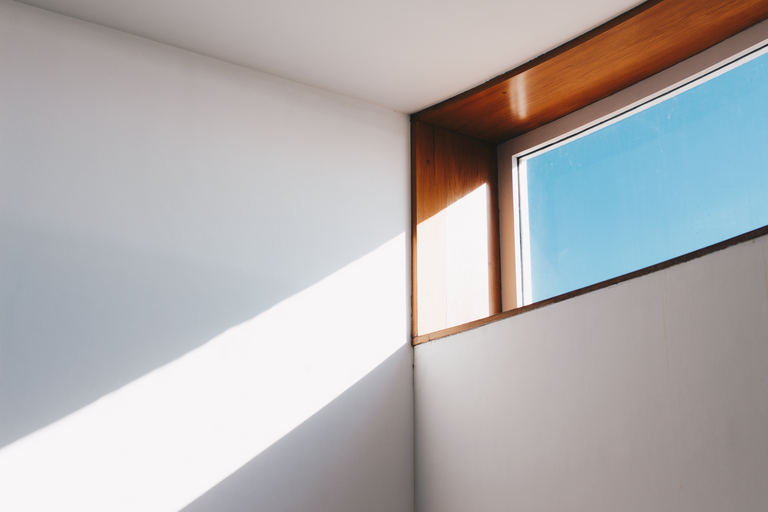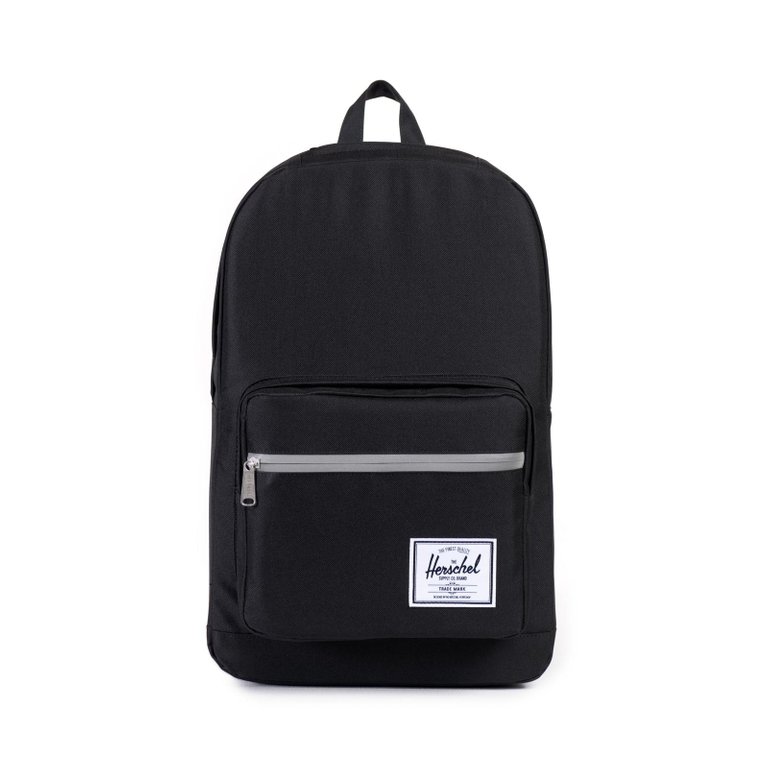
"Wait, you wear the same underwear for 3 days?"
"How... WHY?!"
That's my friend talking. She couldn't fathom why I wear the same boxer trunks up to 3 days in a row. I never saw it as a problem. I saw it as a solution to my cluttered life. Hear me out.
I once read Regev Elya's post on how in the Israeli army, soldiers would wear their underwear for 4 days - front, back, then inside out front, back. I thought, that would be cool to try. Lo and behold, within a week, I was living the 3-day underwear life. I never thought it was possible, but I did it.
This led me to think about all my other beliefs about life. Naturally my 23-year-old mind wandered and I started to declutter things in my life. I went back to my hometown for a week-long trip with just a 21 liter backpack, my trusty overpriced Hershel Pop Quiz.

Yup, this exact one.
Surprisingly it worked too. (Will work on a minimalist packing list in the future, I promise - my goal is to do one bag living). I felt A LOT lighter, less baggage (mental AND physical), less wait times at the airport for luggage, and just less things to give a sh*t about. It was liberating.
So What is Minimalism?
There's no fixed definition. But I will borrow the best definition I heard -
"Less, but better." - Dieter Rams
It's the act of simplifying your possessions, headspace, and decisions down to the essentials or the amount you are most happy with.
The common topic among minimalist writers is reducing their stuff. It's the most understandable angle for minimalism and a great place to start.
In this post, we will begin with decluttering your physical objects for a lighter conscious.
How to Minimize and Declutter Your Stuff
1. Start a packing party
You could do this alone (but hey, that wouldn't be a party right?)
Here's what you need-
- get a few carton boxes
- a designated dry area to store the boxes
- have an entire afternoon spared
- a few friends over to make it fun
As the weeks go by, only reach for your boxes when you think of something you need to use in your daily routine. Don't fall for the trap of looking into your boxes and think "Oh, this thing - I should use it more."
The point of this exercise is to show you how little things you actually need and how little things you actually use. You feel bummed out by how messy your room is and how it is to throw some things away as "you might need them one day." By storing them in boxes, you can rest assured that they are lost forever - just in a different place in the house.
As the months go by, you will grow less attached to the stuff in the box and eventually find it easier to let them go. Take as long as you need - even a year if needed. To make it easier, donate your stuff on a weekly basis to the local parish nearby or any center that accepts donations.
2. When you find it hard to let something go...
Ask yourself:
"If I didn't already own this, would I go out of my way to buy this again?"
I know how hard it can be - I get attached to my books ALL THE TIME. But slowly and surely, I start to find myself not caring so much what happens to them. I wouldn't want my spouse to worry about my books when I'm gone. Nor would I want to travel with my library when I'm abroad.
(My ideal vacation would be with just a smartphone for writing and photo taking. NO LAPTOPS ALLOWED.)
I tell myself - if there was a fire, I could give less than a damn what happens to my books or anything else I haven't used or aware of in the last 6 months. But back to the point:
It's easy to find what we already have more valuable than it is - this phenomenon is called the endowment effect.
Ask yourself the question above if you are unsure.
If you answer "Yes", then you REALLY find it valuable in your life - keep it.
If you answer "No", consider donating it or selling it.
3. List your stuff to sell
This would be motivational in itself if you are strapped for cash, or would really like to speed up the savings for that trip to Europe. Selling away your stuff that you rarely ever (or never) use to finance your next adventure is a great motivator in and of itself.
Use sites like Craiglist and other platforms to list your stuff for sale. Lookout for Facebook groups as well in your local area. Search for "second hand" and you are bound to find local Facebook groups who either swap or buy stuff from each other.
Letting go isn't easy but it sure as hell is fun once you get the hang of it. Imagine a life of less commitments, less responsibilities, less burdens, a life of lightness - it's not a dream, it's closer than you think. All you have to do is start putting away one thing and the snowball of eternal bliss will start rolling.
[mc4wp_form id="848"]
Posted from my blog with SteemPress : https://bensimblog.com/minimalism-how-to-get-started/